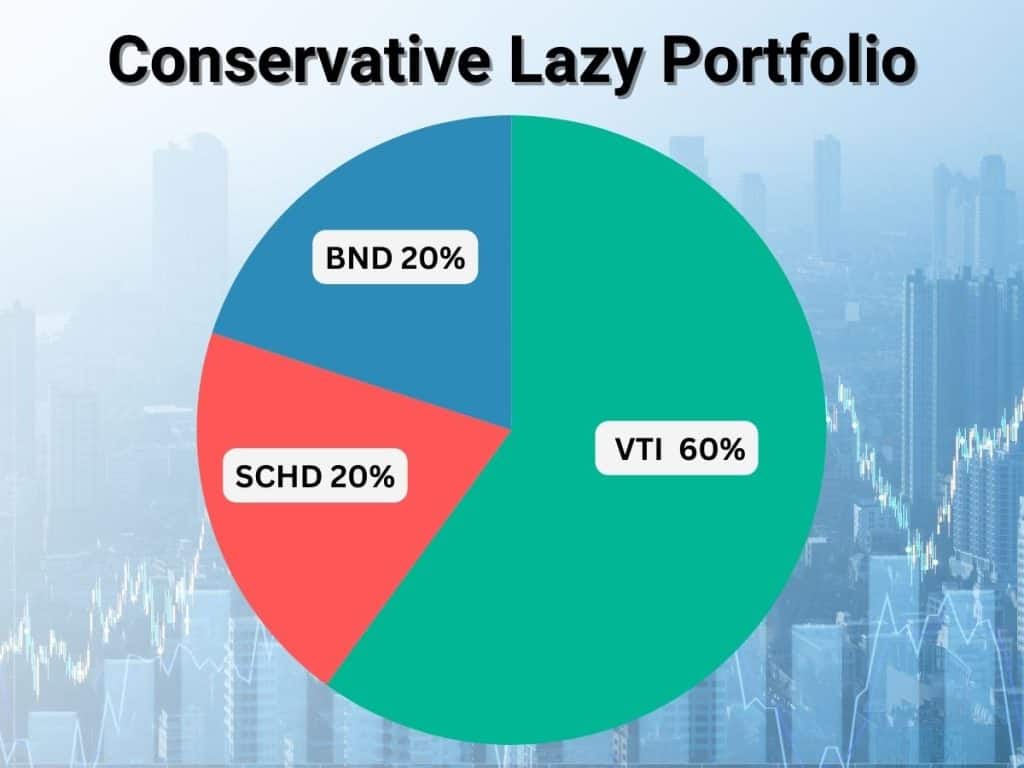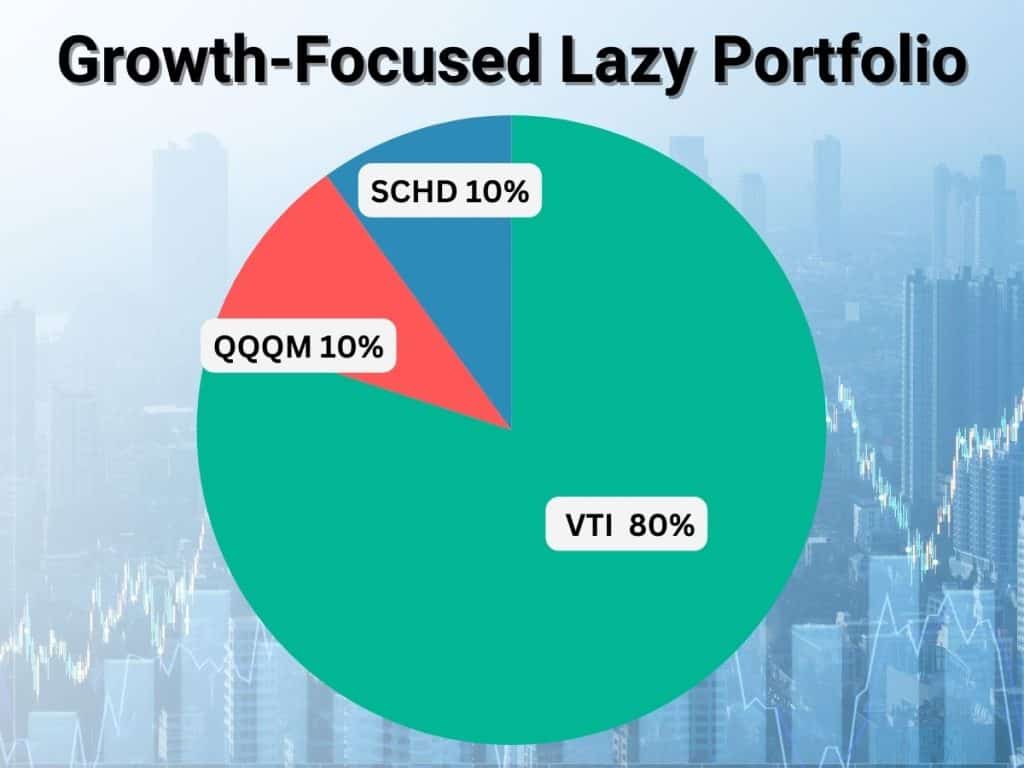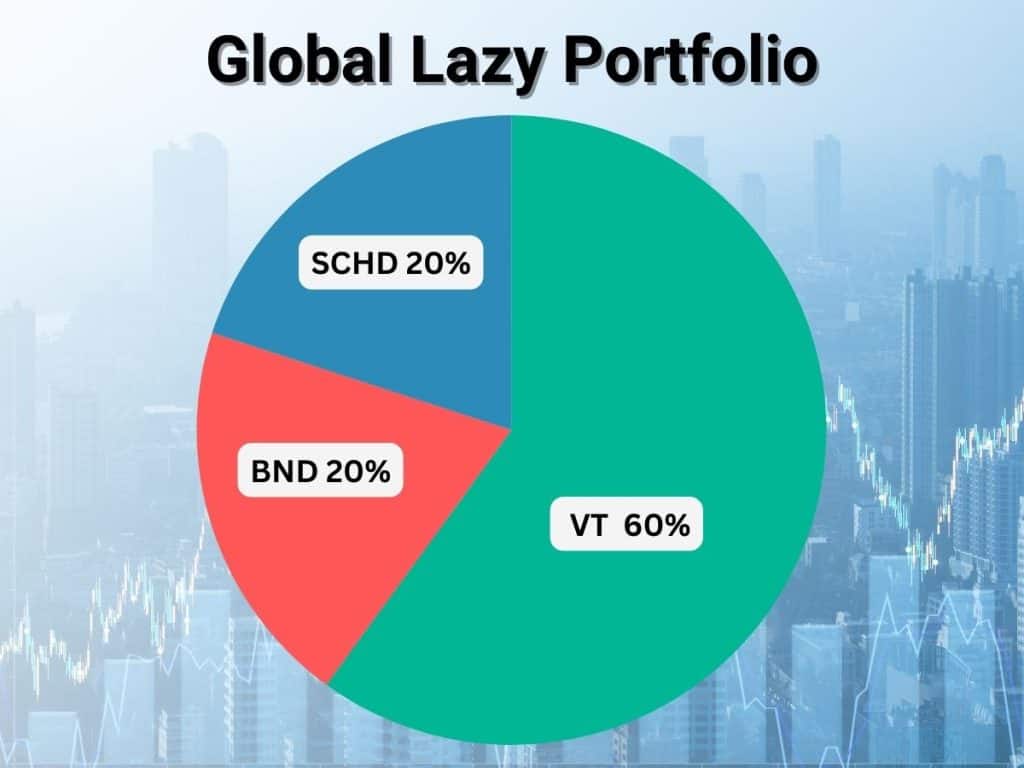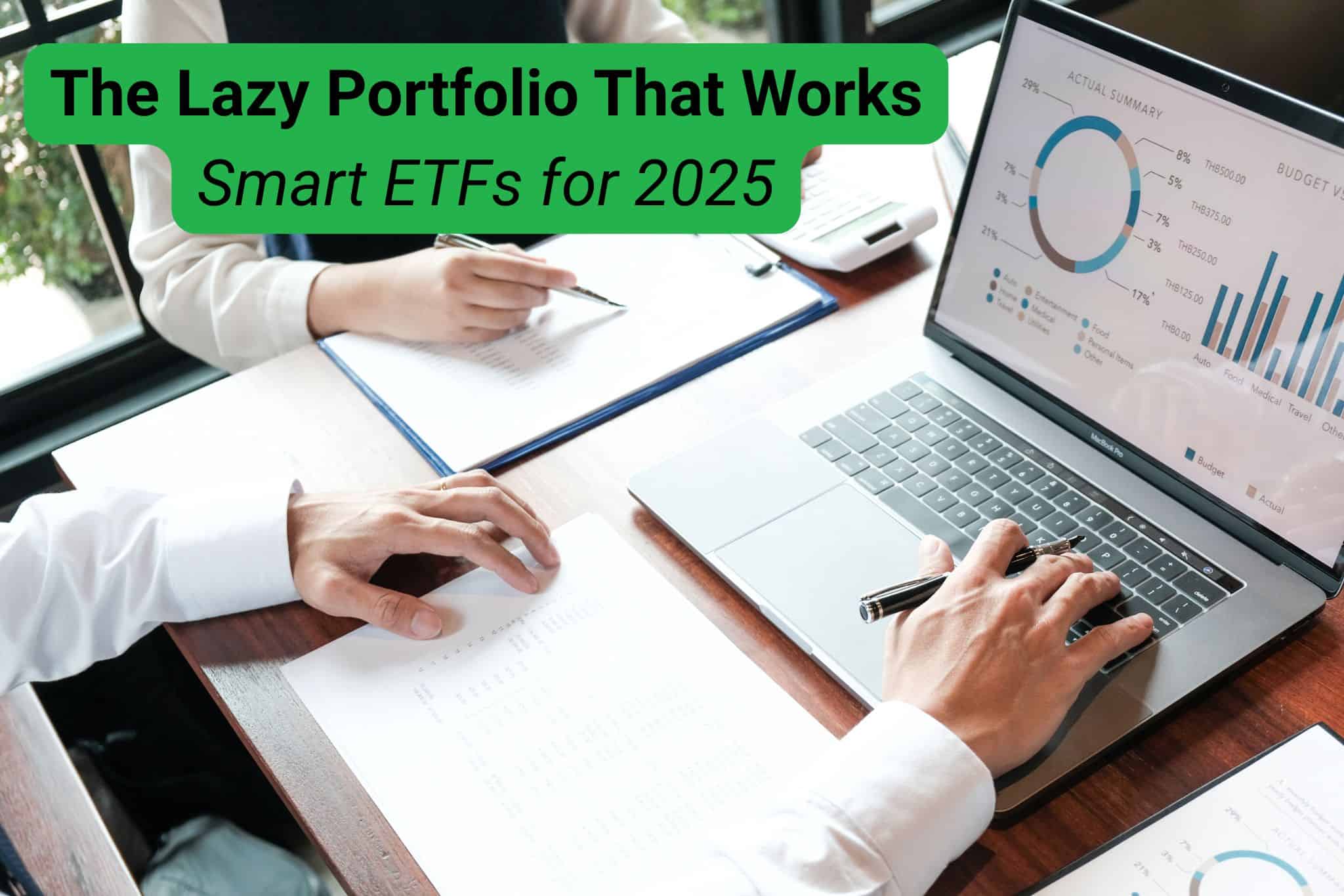The Lazy Portfolio That Actually Works: Best ETFs for 2025
Investing doesn’t have to be complicated. In fact, some of the most successful investors use simple, low-maintenance strategies to grow their wealth. If you’re tired of market noise, overwhelmed by stock picking, or simply want a portfolio that works quietly in the background, a lazy portfolio might be the best move you make in 2025.
In this guide, we’ll break down exactly what a lazy portfolio is, why it works, and which ETFs offer the best balance of simplicity, growth, and peace of mind. We’ll also show you a few example allocations you can start using today, whether you’re just getting started or optimizing a retirement plan.
🎥 Prefer to watch instead? Check out our video below:
What Is a Lazy Portfolio?
A lazy portfolio is a long-term investing strategy built on simplicity, diversification, and low effort. It typically uses a small number of ETFs (exchange-traded funds) to cover broad areas of the market, with little to no trading, research, or rebalancing required.
The idea? Build it once. Let it run. Revisit it once a year—or even less. It’s a set-it-and-forget-it method that emphasizes staying invested rather than trying to time the market.
While not a requirement, most lazy portfolios do include automatic monthly contributions to help investors stay consistent, avoid timing mistakes, and benefit from dollar-cost averaging.

Why Lazy Portfolios Work (Especially in 2025)
In 2025, investors face a mix of opportunity and uncertainty: high interest rates, a volatile election year, continued AI-driven disruption, and rising inflation concerns. The lazy portfolio works because it removes emotional decision-making from the equation.
Here’s why it still works:
- Broad market exposure: Lazy portfolios typically hold the entire market through one or two ETFs.
- Low fees: The fewer the funds and the lower the expense ratios, the more you keep.
- Behavioral advantage: You’re less likely to panic and sell when markets dip.
- Automation-friendly: Easily set up through platforms like Vanguard, Schwab, Fidelity, or M1 Finance.
Lazy doesn’t mean thoughtless. It means efficient.
Best ETFs for a Lazy Portfolio in 2025
These ETFs are low-cost, highly liquid, and provide excellent diversification. They form the foundation of a smart, simple investment strategy.
1. VTI – Vanguard Total Stock Market ETF
- Covers the entire U.S. market (large, mid, small-cap)
- Expense ratio: 0.03%
- Ideal for a one-fund solution or the “core” of a lazy setup
2. SCHD – Schwab U.S. Dividend Equity ETF
- Focuses on quality dividend-paying U.S. companies
- Known for consistency and resilience
- Expense ratio: 0.06%
3. QQQM – Invesco NASDAQ 100 ETF
- A lighter-weight version of QQQ with lower fees
- Adds growth exposure to top tech names
- Expense ratio: 0.15%
4. VT – Vanguard Total World Stock ETF
- Covers both U.S. and international markets
- Good for global diversification in one fund
5. BND – Vanguard Total Bond Market ETF
- Core bond exposure for conservative or retiree-focused allocations
6. BOTZ – Global X Robotics & Artificial Intelligence ETF (Optional satellite)
- AI and automation-focused growth play
- Not for your core, but a solid addition for growth
Sample Lazy Portfolio Allocations
Depending on your goals, risk tolerance, and retirement horizon, here are three simple ETF combinations you can use to build a complete portfolio.
Conservative Lazy Portfolio (Good for Retirees)
This allocation is built for stability and income. It emphasizes broad market exposure with VTI, steady dividends from SCHD, and the low volatility of BND to help protect principal in retirement.
- 60% VTI – Vanguard Total Stock Market ETF
- 20% SCHD – Schwab Dividend Equity ETF
- 20% BND – Vanguard Total Bond Market ETF

Growth-Focused Lazy Portfolio (Long-Term Investors)
This portfolio leans into long-term capital appreciation. With a heavy allocation to VTI and added tech growth through QQQM, it offers more upside while staying diversified and relatively low-maintenance.
- 80% VTI – Vanguard Total Stock Market ETF
- 10% QQQM – Invesco NASDAQ 100 ETF
- 10% SCHD – Schwab Dividend Equity ETF

Lazy Global Portfolio
For investors seeking international exposure without added complexity, this setup combines VT for global reach, SCHD for dividend income, and BND for stability, creating a globally balanced and hands-off strategy.
- 60% VT – Vanguard Total World Stock ETF
- 20% SCHD – Schwab Dividend Equity ETF
- 20% BND – Vanguard Total Bond Market ETF

Each of these is designed to be simple, diversified, and easy to maintain.
How to Automate Your Lazy Portfolio
Set it and forget it doesn’t mean “ignore it forever” — but it does mean setting it up to run without your constant input. Here’s how:
- Use platforms that allow fractional shares and auto-contributions (M1, Fidelity, Schwab)
- Set a recurring monthly contribution based on your budget
- Rebalance annually, or when your target allocations drift significantly
- Ignore the noise — don’t chase headlines or jump in and out of the market
This is the path to long-term, low-stress wealth building.
Final Thoughts: Why Simple Beats Fancy
Wall Street thrives on complexity. But most successful investors win by keeping things simple. The lazy portfolio isn’t exciting — and that’s the point. It’s stable. It’s smart. And it works.
If you’re building for retirement, financial independence, or just peace of mind, this approach might be exactly what you need.
👉 Want more simple investing strategies?
- Subscribe on YouTube @SmartMoneyWiz
- Read more articles at SmartMoneyWiz.net
- New to investing? Start here with our beginner’s guide.
Stay consistent. Stay invested. And keep it simple.

